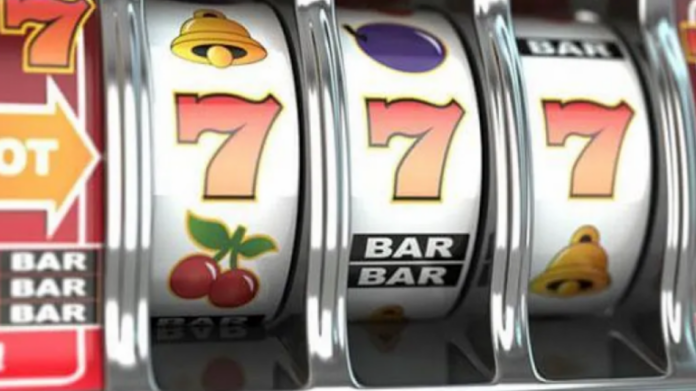Slot games have captivated casino enthusiasts for decades, providing thrilling experiences and the allure of life-changing jackpots. While the excitement of these games is undeniable, there’s a critical component that often leaves players perplexed and frustrated: Random Number Generators (RNGs).
Also, be sure to check where you are playing real money pokies. The point is to find a platform that is safe, honest, and reliable.
These sophisticated algorithms are the backbone of modern slot machines, ensuring every spin’s outcome is unpredictable. However, RNGs also render many popular strategies ineffective, challenging players to rethink their approach to these games.
The Basics of RNG

To understand how RNGs affect slot game strategies, it’s crucial to grasp their fundamental operation. An RNG is a complex algorithm that generates a sequence of numbers, each corresponding to a particular outcome on the slot reels.
This process occurs in real time, producing thousands of results per second, even when the machine is not in use. When a player hits the spin button, the RNG picks the most recent number, determining the symbols that appear on the screen.
This method guarantees fairness and unpredictability, as each spin is independent of the previous one. The outcome is purely random, devoid of any patterns or sequences. Casinos and gaming commissions rigorously test and certify these RNGs to ensure compliance with fair gaming standards, making sure that every player has an equal chance of winning.
Debunking Popular Slot Strategies

Over the years, numerous strategies have been proposed to outsmart slot machines. However, the reality is that most of these tactics are rendered useless by the RNG’s nature. Let’s explore some of the most common strategies and why they fail in the face of true randomness.
The “Hot and Cold” Machine Myth
One of the most pervasive beliefs among slot players is the idea of “hot” and “cold” machines. According to this myth, a machine that hasn’t paid out in a while is “due” for a win, while one that has recently paid out is “cold” and unlikely to hit again soon.
However, because each spin is independent, the past outcomes have no bearing on future results. A machine that has just paid out a jackpot is just as likely to hit another jackpot on the very next spin as a machine that hasn’t paid out in hours.
The “Bet Max” Strategy
Another common approach is the “bet max” strategy, where players wager the maximum number of coins in the belief that this increases their chances of winning big. While it’s true that betting maximum coins can unlock higher payouts and jackpots in some machines, it doesn’t influence the randomness of the outcomes.
The RNG doesn’t favor maximum bets over smaller ones; it merely ensures that the spin results are random. Therefore, while betting max can enhance potential rewards, it doesn’t improve the odds of hitting a winning combination.
Timing and Pattern-Based Strategies
Some players believe in timing their spins or identifying patterns in the game. They might observe the machine and try to spin at a specific moment, thinking they can “catch” a winning sequence. However, given that RNGs operate continuously and at high speed, any attempt to time the spin is futile.
The numbers are generated so rapidly that even a microsecond difference can result in a completely different outcome. Patterns are nonexistent in a genuinely random system, making these strategies ineffective.
The Psychological Impact of RNG

The psychological aspect of gambling cannot be overlooked when discussing RNGs and slot strategies. The illusion of control and the belief in strategies can significantly impact a player’s behavior and decision-making process. Understanding the psychological effects can help players approach slot games with a more realistic mindset.
The Illusion of Control
The illusion of control is a cognitive bias where people overestimate their ability to influence outcomes that are actually determined by chance. In the context of slot games, this illusion can lead players to believe that their actions, such as choosing a specific machine or betting a certain way, can affect the results. This belief can result in prolonged play and increased spending, as players are convinced that they can eventually “crack the code” and win.
Reinforcement and Reward Systems
Slot machines are designed to exploit the brain’s reward system, providing intermittent reinforcement that keeps players engaged. The occasional small wins, combined with the anticipation of a big jackpot, trigger the release of dopamine, a neurotransmitter associated with pleasure and reward. This reinforcement schedule makes it challenging for players to walk away, even when they’re aware that the outcomes are random and their strategies are ineffective.
Embracing the RNG Reality
Given the undeniable influence of RNGs on slot game outcomes, players must adjust their expectations and strategies accordingly. Embracing the randomness of these games can lead to a more enjoyable and less frustrating experience.
Focus on Entertainment Value
Instead of fixating on winning, players should approach slot games as a form of entertainment. Accepting that the results are random and beyond their control can reduce frustration and enhance the enjoyment of the game. Setting a budget and viewing any losses as the cost of entertainment, similar to buying a movie ticket or attending a concert, can help manage expectations.
Responsible Gambling Practices
Practicing responsible gambling is crucial in maintaining a healthy relationship with slot games. This includes setting time and money limits, taking regular breaks, and avoiding chasing losses. Understanding that no strategy can guarantee a win in a game governed by RNGs can help players make more informed and mindful decisions.
Exploring Different Game Types
While traditional slot machines rely heavily on RNGs, there are other casino games with elements of skill and strategy. Players who enjoy strategic thinking might find more satisfaction in games like poker or blackjack, where their decisions can influence the outcome to some extent. Exploring these alternatives can provide a refreshing change and a different type of challenge.
Conclusion

Random Number Generators are the silent arbiters of fate in slot games, ensuring fairness and unpredictability. While many players cling to strategies in hopes of beating the odds, the reality is that RNGs make these tactics largely ineffective. Understanding the true nature of these algorithms can help players approach slot games with a more realistic perspective, focusing on entertainment rather than elusive wins.










